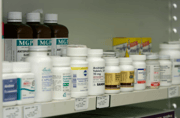
Health savings accounts continue to provide a tax-advantaged way to manage healthcare expenses, offering more flexibility than many people realize.
With new rules and expansions in 2026, the range of what you can pay for using an HSA is broader than ever.
From routine medical supplies to specialized treatments, these accounts allow for strategic management of both expected and unexpected costs. Exploring these options can help you make the most of your HSA and ensure your healthcare dollars go further.
1. common or routine medical expenses
HSAs cover everyday healthcare items that are essential for maintaining wellness and managing minor health issues. These expenses can be purchased directly or reimbursed from your HSA if they meet IRS criteria.
Eligible items must primarily prevent or treat a physical or mental illness. Examples include both medical devices and consumable products that help you care for yourself or family members.
- Annual exams
- Baby ointment
- Band-Aids
- Blood pressure monitor
- Breathing strips
- Breast milk storage bags and bottles
- Breast pumps
- Certain types of lip balm
- Certain types of sunscreen
- Copays for prescriptions and office visits
- Crutches
- Dental care
- Diaper-rash cream
- Flu shots
- Glucose monitor
- Hearing aids
- Medical alert bracelet
- Nursing pads
- Pedialyte
- Prescription medications
- Thermometers
- Vision care
- Wheelchairs
- X-rays
2. COVID-19 PPE supplies
Personal protective equipment became recognized as a qualified expense to prevent the spread of the coronavirus. This change allows HSA funds to cover items that protect your health and the health of others. The IRS specifies that only certain products meet the eligibility criteria. These items are especially relevant for everyday hygiene and community safety.
- Hand sanitizer
- Masks
- Sanitizing wipes
3. menstrual products and OTC medications
The CARES Act expanded eligible HSA expenses to include menstrual products and over-the-counter medications. These changes apply to expenses paid after December 31, 2019. OTC medications must be used to treat a specific health condition to qualify. Menstrual products and related healthcare items are now broadly reimbursable.
- Acetaminophen (Tylenol)
- Acne treatments
- Allergy medications
- Aspirin
- Cold and cough medicines
- COVID-19 tests
- Heartburn medications
- Ibuprofen (Advil, Motrin)
- Laxatives
- Liners
- Menstrual cups
- Nasal sprays
- Pads
- Period panties
- Sleep aids
- Tampons
- Tums (calcium carbonate)
4. family-planning products
HSAs can cover a variety of expenses related to family planning and reproductive health. These items are essential for supporting fertility, pregnancy, and preventive care. The goal of the expense must be to treat or prevent a health condition. A wide range of contraceptive and prenatal services qualifies for reimbursement.
- Birth control pills
- Condoms
- Contraceptives
- Fertility tests
- Infertility treatments
- Ovulation monitors
- Pregnancy tests
- Prenatal vitamins
- Tubal ligations
- Ultrasounds
- Vasectomies
- Vasectomy reversals
5. emergency medical expenses
Emergencies can happen at any time, and HSA funds can be used to cover unexpected medical costs. Expenses must be directly related to urgent medical care. Coverage includes services and devices used to stabilize or treat serious conditions. Planning for these potential costs ensures access to timely care without financial strain.
- Ambulance services
- CT scans
- ER visits
- EMS devices
- Hospital visits
- Medical records fees
- MRIs
- Urgent care services
6. mental health expenses
Mental health is a critical part of overall wellness, and HSAs can help cover related expenses. Counseling and therapy sessions, as well as alternative treatments, may be reimbursed. The expenses must be aimed at treating a recognized mental health condition. Travel expenses for appointments can also qualify.
- Acupuncture
- Mental health counseling
- Psychiatric care
- Psychotherapy
- Transportation to mental health appointments
Also read: 9 tax breaks for people over 50 you might be missing
7. dental care
Dental care costs are a common out-of-pocket expense, and HSAs can reimburse many treatments. Eligible expenses focus on health-related procedures rather than cosmetic services. This includes both preventive and restorative care to maintain oral health. Regular dental care can prevent more serious medical problems in the future.
- Braces
- Dental cleanings
- Dental fillings
- Dental implants for a restorative procedure
- Dental X-rays
- Dentures
- Orthodontist visits
- Root canals
- Tooth extraction
- Wisdom teeth removal
8. vision care
Vision-related expenses can quickly add up, and HSAs can cover both routine and specialized services. This includes diagnostic, corrective, and assistive tools for eye health. Eligible purchases can support both everyday vision care and significant procedures. Individuals with visual impairments may also use funds for service animals.
- Contact lens cases
- Contact lens cleaning solution
- Eye drops
- Eye exams
- Eyeglass cases
- LASIK eye surgeries
- Prescription contact lenses
- Prescription eyeglasses
- Buying a guide dog to assist with daily activities
- Training a guide dog
- Visiting the vet
9. exceptions and additional notes
Certain health expenses remain ineligible unless prescribed or justified with a letter of medical necessity. This includes items like general vitamins, gym memberships for wellness, and weight-loss programs. Insurance premiums are only eligible in specific situations, including COBRA or long-term care insurance. Understanding exceptions ensures compliance and maximizes the tax advantages of an HSA.
- Health clubs (with letter of medical necessity)
- Vitamins (with letter of medical necessity)
- Weight-loss programs (with letter of medical necessity)
Read next:
- Primary Insurance falling short? Here’s why secondary coverage might be your best move
- 9 hidden Social Security costs that could surprise you in retirement
Have you explored all the items your HSA can cover this year? Share your experiences and tips in the comments to help others take full advantage of their accounts. Small adjustments in spending or contributions can significantly reduce healthcare costs. What surprising HSA-eligible item have you discovered recently?






